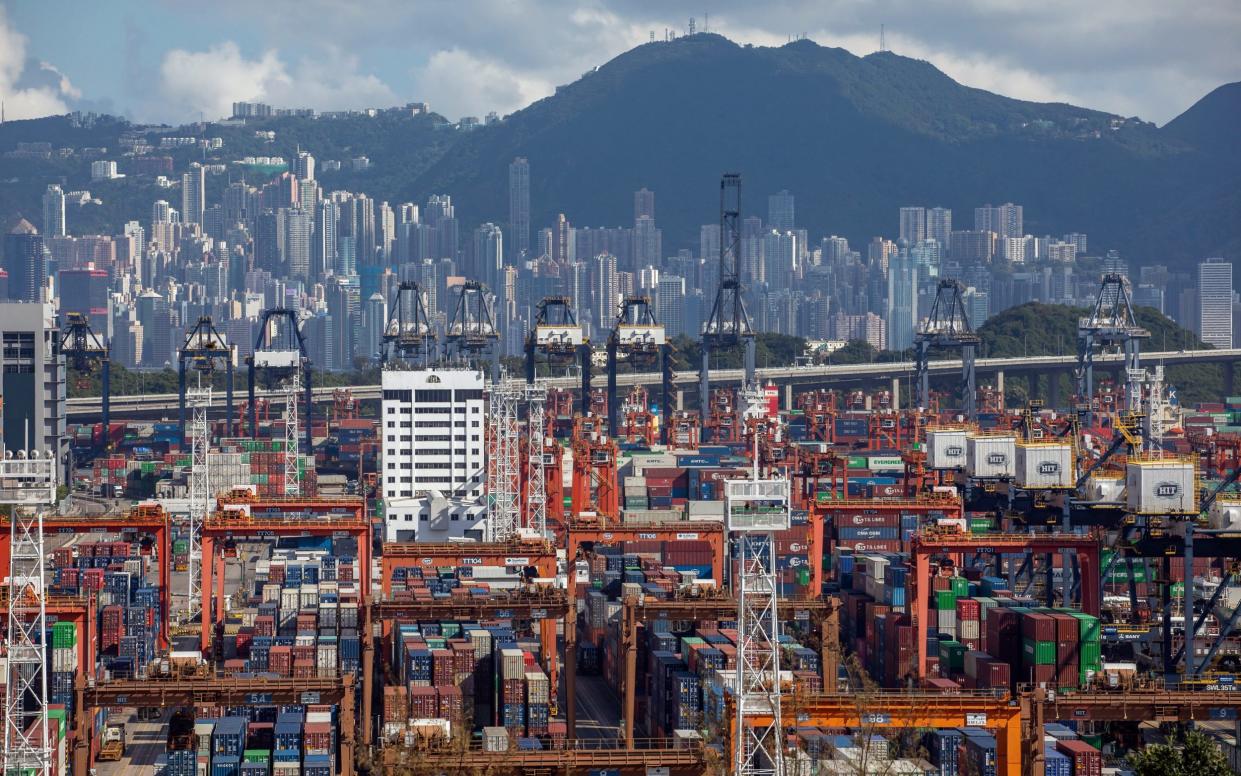UK’s dependence on Chinese imports is ‘threat to national security’

The full extent of Britain’s reliance on trade with China is laid bare in a new report which claims that 28,000 firms import items for which the UK is almost “entirely dependent” on Chinese companies.
An analysis of official data found that more than 50,000 types of products are being imported almost exclusively from China, including chemicals used in the manufacturing of dyes.
Conservative MPs said the report, by the Independent Business Network lobby group, highlighted a “disturbing” trend of increasing reliance on China, with David Jones, the former Brexit minister, stating: “The Government must take the measures at its disposal to curb our increasing dependency on Chinese goods.”
Last year it emerged that Boris Johnson had launched “Project Defend” – a bid to diminish the UK’s reliance on China for vital medical supplies and other imports.
The Independent Business Network’s report found that, of 183 product types making up the UK’s “disaster relief list” of products deemed vital for the fight against Covid-19, 123 had seen a rise in the proportion of imports from China since the start of the pandemic. They include the “vital components” used to tackle Covid-19 such as ethanol disinfectants, diagnostic test kits, face masks, PPE, and adhesive dressings.
China, the report states, has “cemented itself as the primary source of disaster relief equipment in the UK import market”, with the country now responsible for 26 per cent of Britain’s imports of such items – amounting to some £12.26 billion – up from 7.7 per cent in 2019.
According to the research, in the 12 months to March 2021, 72 per cent of all imports of key chemicals used in disinfectants came from China, along with 71 per cent of plastic-coated medical gloves and 88.3 per cent of “gloves made from nonwovens”.
The paper, based on an analysis of published trade data, and requests under the Freedom of Information Act, comes after China overtook Germany to become the UK’s single biggest import market for the first time since records began. Goods imported from the country rose 66 per cent from the start of 2018 in the first quarter of this year, it emerged in May.
John Longworth, the Independent Business Network’s chairman and a former director-general of the British Chambers of Commerce, said: “The scale of the UK's growing trade dependence on China is frightening. What’s more, the Government’s words are hollow. Far from reducing our trade dependency, the situation is getting worse... The conclusions of this report show the Government is failing to capitalise on the opportunities Brexit has given us to fix the problem.
“China’s growing presence in British industry is not just a threat to business, it is a threat to national security. Growing monopolies on supplies for areas including biosecurity disaster relief, electronics and aerospace engineering have the potential to seriously undermine the UK’s domestic security and wider economy.”
Mr Jones said: “The findings of this report lay bare the deeply unsettling rise in the UK’s economic and trade dependency on China, including our national security vulnerabilities.
“In terms of Britain’s capability to respond to events like the pandemic, we are now more dependent on China than we were before the coronavirus outbreak… a country which has previously demonstrated little restraint in taking advantage of its economic and trade influence to extend its geo-political objectives.”
A government spokesman said: “UK trade with China is worth £81 billion which supports jobs and livelihoods, and although we will pursue a positive trading relationship in non-strategic areas, we will also ensure that our national security and values are protected, and that China is held to account on its international commitments.
“Through our presidency of the G7, we are calling for tougher measures against market-distorting practices and pushing for a fully-functioning dispute settlement system at the World Trade Organisation to tackle unfair subsidies in industry and agriculture.”

